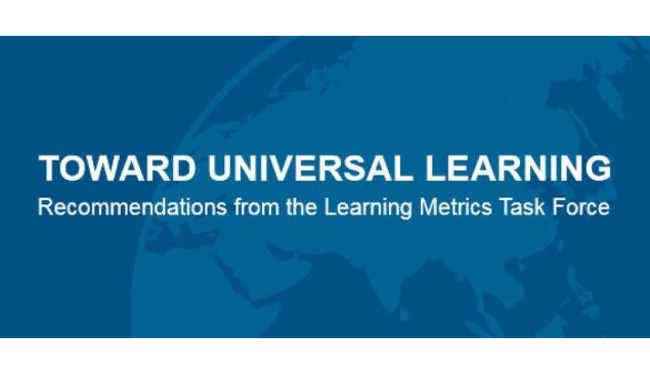What is next for efforts to assess 21st Century Skills? Learning Champion representatives from Pakistan, Palestine, and Zambia reflect on what they have gained from the Learning Metrics Task Force (LMTF) initiative and discuss how they plan to take forward this work.
“For us, it was an opportunity, because we have always been crying to make sure that we see our children learning,” said Angel Mutale Kaliminwa, of the Examinations Council of Zambia, reflecting on his country’s participation in the Learning Metrics Task Force (LMTF) initiative. “And the Learning Champions, they were looking at how we can make sure that the children don’t just go to school, but they also learn.”
LMTF, an initiative first convened by the UNESCO Institute for Statistics and the Center for Universal Education at Brookings in 2012, officially concluded its activities at the end of 2015. Over the course of three and a half years, LMTF sought to shift the global focus on access to education, towards the broader issue of access plus learning. It also aimed to broaden discussions of what children and youth should learn and to advance understanding of how a comprehensive set of seven learning domains could be assessed.
As part of the initiative, 15 national and local education systems worked to adapt the LMTF framework to their particular contexts, sharing their experiences with fellow Learning Champions. Now that LMTF has formally ended, these Learning Champions are reflecting on just how much they have gained from the initiative, and how much collaboration is still needed.
We need to assess the ability of our students to be part of the world.
Dr. Mohammed Matar, Director of the Palestine Assessment and Evaluation Department, found the exposure to different assessment domains to be one of the most valuable aspects of the LMTF initiative. “Now we are teaching not for knowing, but to be in life,” he commented. “We are now introducing math for life, language for life, science for life. So being in this stream, I think we need to assess the ability of our students to be part of the world.”
To do this, Matar explained, Palestine has had to learn how to assess new domains of learning. “In the past, we always had a strong national assessment system, but in the Arabic language, science and mathematics only. We were not going towards other issues like assessment in early childhood learning, life skills, ICT assessments. These things are new and fortunately, we have this LMTF approach that introduces these issues—not only as ideas but mechanisms: how to do it and how to use the results for improvement processes.”
Regional partnerships will help cover this kind of gap.
The LMTF initiative also offered an invaluable opportunity to learn from other countries and especially share concrete assessment instruments that had been tested in other contexts.
“We had a bit of a technical challenge,” said Saba Saeed of Idara-e-Taleem-O-Aagahi (the Center of Education and Consciousness), “because you see that these skills are hard to test and hard to measure. And in Pakistan, we lack the technical expertise to develop testing instruments on such domains.” LMTF helped solve this challenge, she explained, by facilitating contact with experts from different education systems where these kinds of assessments have been developed, such as in Ontario, Canada, and Buenos Aires, Argentina. If they continue, Saeed said, “Regional partnerships will help cover this kind of gap in Pakistan.”
We are now struggling to utilize the findings of these assessments.
Kaliminwa of Zambia also emphasized how the LMTF initiative has helped to strengthen the linkage between assessments and strategic interventions for improvement. “When we do assess and we give the results, they are not impressive,” he said. “Once we give that kind of information to the Ministry of Education, they don’t just sit back. They think of what intervention they can put in place.”
In Palestine, Matar agreed, “We are now struggling to utilize the findings of these assessments at the school level. And to start talking about action research in the schools, to start talking about remedial ways in the schools to tackle the issue of learning difficulties. So now the challenge is how to reach our schools with the assessment findings and to make the changes.”
We want it to sunset and rise again in the morning.
The Learning Champions have called for the LMTF work to go forward through other mechanisms and collaborations. Notably, the Association for the Development of Education in Africa (ADEA) has partnered with the Rwandan Ministry of Education to launch a new Inter-Country Quality Node on Teaching and Learning, which will enable the continuation of some of the LMTF work in the Africa region.
“We are very optimistic,” said Kaliminwa of Zambia. “By coming together we can learn from our colleagues. And we may also teach them what we have. So that’s why we wouldn’t like LMTF to sunset. We want it to sunset and rise again in the morning.”
AUDIO: Listen to the full interview with Palestine’s Dr Mohammed Matar.
AUDIO: Listen to the full interview with Pakistan’s Saba Saeed.


